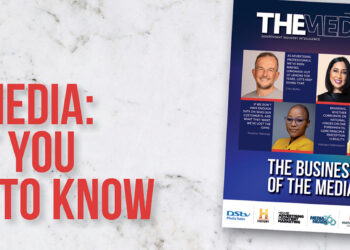As South Africans ride the ‘Coronacoaster’, they need news, information and advice they can trust. There is a unique opportunity for commercial brands and corporates to partner with these news brands to communicate meaningfully with their sizable audiences.
Newspapers are more than the words on a page. For Mondli Makhanya, editor in chief: City Press, they are “news organisations, peddlers of credible news, influencers of society”; and they “need to help readers make good decisions in their lives”.
His counterpart at Rapport, Waldimar Pelser, says bewildered readers are looking for “news they can believe and analysis they can trust, content that reflects their experience of the world”.
Mapula Nkosi, editor in chief: Daily Sun, highlights how this publication changed the local media landscape by providing a voice for the blue collar worker and addressing the “real politics of the reader”, the day-to-day challenges they face, such as a burst sewerage pipe that prevents them leaving their yard.
It was clear that the participants in the invitation-only webinar, Storytelling for Brands, hosted by Gayle Edmunds, strategic projects editor at Ads24 on behalf Ads24 and Media24, has been rethinking their purpose long before the Covid-19 crisis struck. They have transitioned into multiplatform brands using words images and video to tell their stories and adapted swiftly to the challenges of remote publishing.
All three editors concurred that successful news brands could not talk down to their readers. The Daily Sun pioneered the use of the unique kasi and township lexicon and gave legitimacy to the traditional and indigenous belief and knowledge systems of its readers. Pelser says the Rapport platform is the readers’ platform. He stressed that while Rapport catered for people who wanted to consume their news in Afrikaans, it was not only about Afrikaans people.
The editors believe their brands earn readers’ trust by “corroborating and confirming and checking and checking facts again” and sayid they are held to account in a way that social media is not.
They also agree that, while they would be derelict in their duties if they failed to report stories of corruption and malfeasance, they can’t bludgeon their readers over the head with negativity. Readers need stories of hope and guidance to find solutions to their own lives.
This presents commercial brands with an opportunity to use these trusted media brands as a vehicle for their messages. It us not about simply booking advertising space or providing bland or brand bludgeoning press, but about collaborating with the news brands to allow them to explore and tell these stories in the language of the brands and through interrogative journalistic eyes.
Nkosi announced that the Daily Sun had partnered with 1Life and Mzansi Wethu to launch Sun’Ceda, a TV programme providing solutions and assistance to readers who have reached out for help.
Another example of the Daily Sun’s constructive engagement with its readers is Mr Fixit, a duo who traverse the country to attend to issues, and in so doing, embarrass the municipal and council officials who have failed in their duties. She spoke too of SunPower, which showed that SunReaders were a community geared to solving their own problems and helping each other.
The “jewel in the crown” for Makhanya, is the long-running partnership project City Press runs with Absa. Money Makeover is a six month financial bootcamp which takes six readers who were failing in their financial goals and puts them under the guidance of the publication’s personal finance editor and Absa financial advisers. Not only did the six manage to achieve their goals, but many readers told the publication that they had been able to resolve their problems after following the lessons shared during the series.
Pelser stresses that when Rapport entered into these partnerships, the team produced the kind of copy they would produce for the newspaper, constructing stories that are compelling and relevant to their readers. He cites successful collaborations with the Department of Environmental Affairs, the Industrial Development Corporation of South Africa, Coca-Cola, Grobank and the Ombudsman for Banking Services. In the case of the last mentioned, they provided advice on how not to fall prey to online scams.
The editors agreed that South Africans cannot simply rely on politicians to provide the solutions to the problems which have been exacerbated by the pandemic. This presents commercial and news brands with opportunities to collaborate to find solutions and shape the way forward.

Having spent some decades working in the media agencies, Britta Reid now relishes the opportunity to take an independent perspective on the South African media world, especially during this time of radical research transformation.














